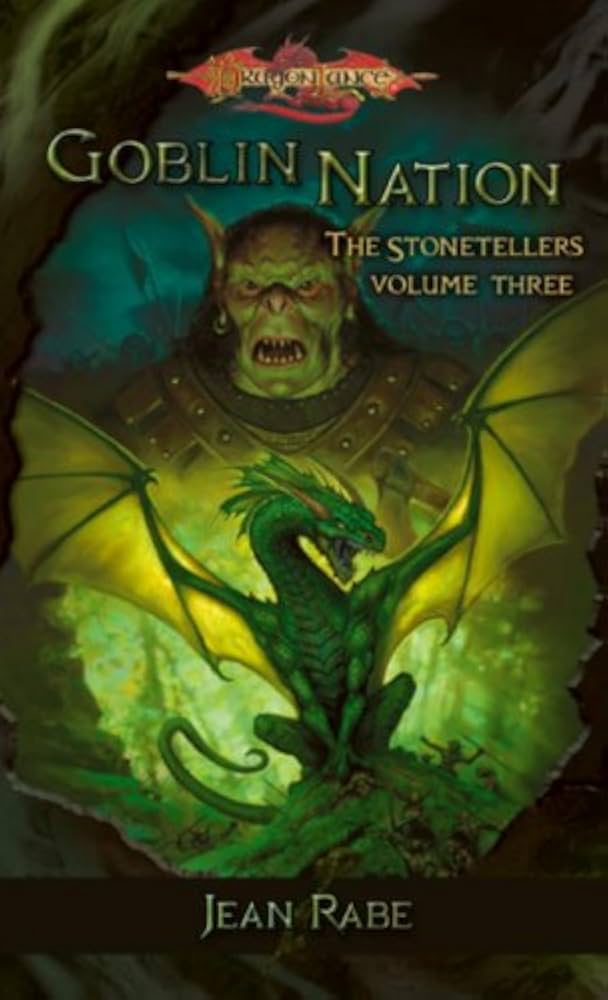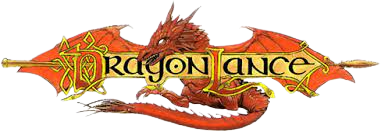Goblin Nation

Table of Contents
ToggleOverview
Goblin Nation, written by Stan Brown, is the final installment in the Stonetellers trilogy within the Age of Mortals era of Dragonlance. It brings to a close the unexpected and richly textured saga of goblins and hobgoblins as they struggle for identity, autonomy, and legacy in a world shaped by dragons, knights, and gods who rarely notice them.
This is a novel of revolution and reckoning. In a land where goblins have long been viewed as expendable pawns, Goblin Nation dares to tell a story from their point of view—with depth, dignity, and surprising resonance.
Main Character: Khass
A goblin soldier turned visionary leader, Khass is fiercely intelligent, pragmatic, and quietly idealistic.
His journey from loyal underling to revolutionary commander is filled with inner conflict and hard choices.
Khass’s arc is about becoming more than what the world expects of him—a symbol not of goblin savagery, but of goblin potential.
Supporting Characters
General Grath – A traditionalist hobgoblin leader who believes in rule through fear and force. His clash with Khass symbolizes old versus new ideologies.
Kurk – A scarred goblin warrior and Khass’s closest ally. Loyal, fierce, and morally grounded.
Dwarven and Human Opponents – Representatives of external empires that dismiss goblin autonomy and force Khass to prove his nation’s right to exist.
Other Goblins – A spectrum of voices within the would-be nation, from fanatics to skeptics to dreamers.
Setting
The novel takes place in the bleak borderlands and disputed territories between major Dragonlance powers—rugged plains, makeshift fortresses, and shattered ruins from wars past.
This unclaimed and unwanted land becomes the crucible for Khass’s dream: to unite the goblin tribes and build a homeland where none has ever existed.
The setting is symbolic of goblinkind itself: overlooked, abused, but still standing.
Plot Summary
Khass, having escaped the chaos of previous wars, leads a contingent of goblins and hobgoblins on a bold campaign to form their own nation. But freedom comes at a cost: infighting, resource scarcity, and looming attacks from more powerful neighbors.
Internal division threatens to destroy them before they begin. General Grath challenges Khass’s leadership, demanding a return to brutal conquest.
As the fragile alliance teeters, Khass must rally his people, forge political ties, and fend off invaders, all while redefining what it means to be goblin.
In a climactic stand, Khass chooses diplomacy and strategy over savagery. Though the dream of a nation is left uncertain, Khass emerges as a symbol of a better future. Goblinkind, once voiceless, now has a story and a chance.
Themes
Nationhood and Identity – The novel explores what it means to be a people, not just a species or enemy.
Leadership and Sacrifice – Khass must put aside personal safety and popularity to do what is right for his people.
Breaking Cycles – The story challenges the assumption that goblins are forever doomed to violence and servitude.
Prejudice and Perception – Both external and internal biases are dismantled through the courage of one who dares to lead differently.
Tone & Style
Goblin Nation is emotionally resonant, politically nuanced, and subversive in the best way. It doesn’t ask you to pity goblins—it demands you respect them.
The tone is grounded and thoughtful, blending military strategy with philosophical introspection. The style is accessible but layered, rich in cultural detail and character-driven narrative.
Reception
The novel is praised for:
Giving voice to traditionally marginalized fantasy races.
A compelling protagonist in Khass, whose growth is both personal and political.
Turning a side-story into a meaningful meditation on freedom and leadership.
Some critiques:
Less epic in scale than core Dragonlance entries.
May feel disconnected from the main continuity for some readers.
Final Thoughts
Goblin Nation is a fitting, powerful conclusion to a trilogy that redefines what Dragonlance can be. It proves that even the smallest voices matter—and that true heroism isn’t just about defeating dragons, but about lifting your people out of the shadows.
Recommended for:
Readers seeking fantasy from a fresh, underdog perspective.
Fans of political and social themes woven into character arcs.
Dragonlance followers ready to explore the overlooked corners of Krynn.
